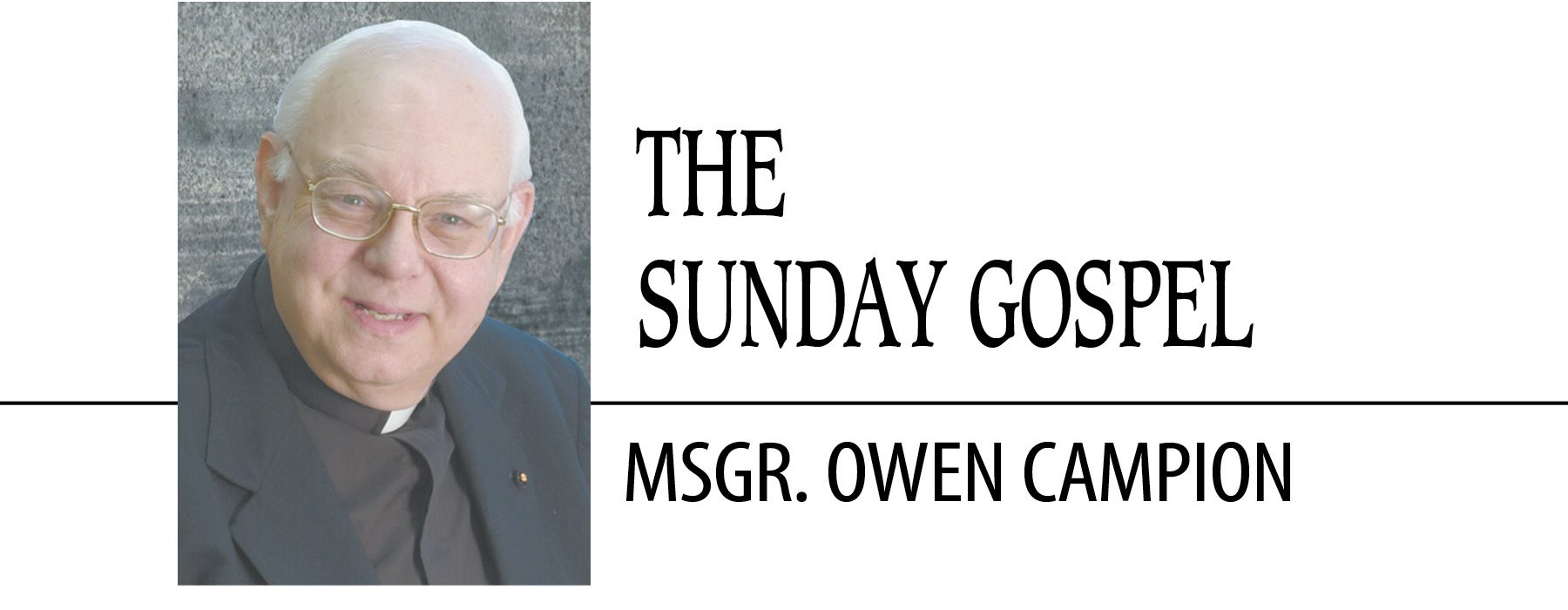August 7, 2021 // The Sunday Gospel
Peace and everlasting life are found in Jesus
Nineteenth Sunday in Ordinary Time
John 6:41-51
The First Book of Kings provides this weekend’s Liturgy of the Word with its first biblical reading.
As the name implies, the kings of Israel are the central figures in these books; however, prominence is given the prophets, such as Elijah in this weekend’s reading. He lived during the first half of the ninth century B.C.
In the reading, Elijah was weary and discouraged. He even asked God to take his life. Then, he fell asleep. When he awoke, a hearth cake and a jug of water were at his side. He ate, drank and was refreshed.
An angel came, revealing that this sustenance was from God, and ordered Elijah to continue his journey. Strengthened by God’s food, Elijah obeyed, finally arriving at the mountain of God, Horeb.
The second reading this weekend is from the Letter to the Ephesians.
A context surrounds all the letters. First, living the Gospel of Jesus was not easy in the first century A.D. Christians faced temptations from “the world, the flesh and the devil” on every side.
Christians in Ephesus faced a special challenge. Not only did they live in a thriving seaport and commercial center, with all the vice and distraction usually associated with such centers, but Ephesus was a major pagan shrine. Pilgrims to its great temple to Diana, the Roman goddess, thronged the city. The Christians had to be faithful to Christ amid these conditions.
As advice, this reading urges the Christian Ephesians to rid themselves of all bitterness and anger and to rise above gossip and malice. On the positive side, it calls upon them to be compassionate and forgiving, noting that God had forgiven them.
St. John’s Gospel is the source of the last reading. Jesus declares, “I am the bread that comes down from heaven.” The audience does not accept this phrase well. They spurn Jesus.
The Lord then enters upon a discourse, one of the most magnificent passages in the New Testament. He is the only access to God for humans. He will rise to new life “on the third day.” It is important to note, when these words were spoken, the crucifixion was in the future.
Finally, the Lord says, “I am the bread of life … I myself am the living bread.” Anyone who consumes this bread attains everlasting life.
Reflection
All of us can identify with Elijah, the prophet of whom we heard in the reading from First Kings.
Whatever the circumstance, life for each of us can be tiring and distressing. Any of us can be reduced to desperation, as was Elijah.
Today and always, the Church speaks with great confidence and assurance. First, it recalls for us, through the first reading, that God sustains us and strengthens us. He sustained and strengthened Elijah. The prophet was no dearer to God than are we.
Secondly, God has given us Jesus, the Son of God. Jesus is in our midst. He is in our world. He shares human nature with us. Born of Mary, a human, Jesus is as human as we.
Jesus is indeed the “bread of life.” Aptly, this reading is associated with the Eucharist. The food given mercifully by God is more than material food, composed of bread and wine. It is divine food, the Body and Blood of the Lord. It enlivens our souls.
The last element in this weekend’s lesson comes again from Elijah.
Life may bring, usually brings, hardships. They may assume many forms. As disciples, we must continue our long walk to the mountain of God. More often than not, we will be traveling uphill, but we must keep our goal in sight: life with God. He will give us the strength we require. He awaits us with everlasting life and peace.
The best news. Delivered to your inbox.
Subscribe to our mailing list today.






